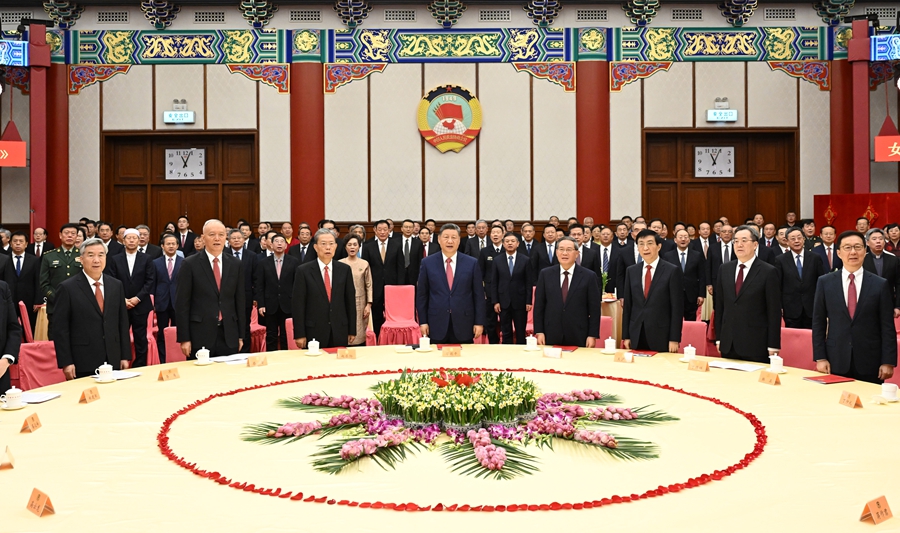
Mauritania’s Vulnerability to al-Qaeda Influence
Mauritania’s Vulnerability to al-Qaeda Influence
The al-Qaeda order in the Maghreb region of North Africa appears to be re-energizing, as evident in the broader drumbeat of terrorist attacks that have diversified in regional reach. The recent arrests of three Mauritanians and three Moroccans in Mauritania raises serious concerns about al-Qaeda’s destructive reach and strategic ambition to tap into the huge reservoir of resentment and anger that marginalized, disenfranchised and antagonized Maghrebi populations feel toward their governments and U.S. policies in the Muslim world. There are growing fears that al-Qaeda’s leadership in Waziristan is rebuilding its external links and bringing disparate Maghrebi jihadi groups that share its ideology into the fold of Osama bin Laden’s cell in Pakistan. This consolidation of diverse armed groups has happened in “just recent months” and led to the emergence of “a reasonably coherent organization,” U.S. Defense Secretary Robert Gates told reporters at the Pentagon recently (American Forces Press Service, July 13).
Indeed, the dynamics of internationalization came into sharper focus as early as June 2005, when the GSPC (now AQIM) attacked a military outpost in Mauritania, killing 15 soldiers (Terrorism Focus, June 10, 2005). Subsequent terrorist attacks in Algeria—and security operations in Morocco and Tunisia—heightened fears of the prospect of the merger of terrorist groups closely affiliated with al-Qaeda. Nevertheless, although the prospects for growth in terrorist activity in North and West Africa are real, claims that terrorist groups in the region are receiving operational instructions and financial assistance from al-Qaeda’s Waziristan base are unlikely. So far, the link-up that exists between the different terrorist groups in the Maghreb on the one hand, and al-Qaeda’s core leadership in Pakistan on the other, has been more ideological than operational.
Nevertheless, as AQIM evolves, so will the threat to North and West Africa. Mauritania, which bridges the Maghreb and western sub-Saharan Africa, is particularly vulnerable to al-Qaeda’s strategic ambition of making direct inroads into the country (Terrorism Monitor, October 7, 2005). Western intelligence agencies suspect that radical Islamist militants have been “running military training camps in the desert border regions of Mauritania” (BBC News, May 21). Although this multiracial former French colony has recently engaged in a laudable and uniquely democratic experiment after the 2005 ouster of its long-time dictator, Maaouiya Ould Taya, at least 40% of Mauritania’s 3.1 million inhabitants are still systematically subjected to multiple forms of discrimination based on their black skin. The Haratines, a derogatory term used to refer to the Arabic-speaking dark-skinned descendants of slaves, came in great numbers to Nouakchott during the 1973-1990 droughts and have been denied basic rights and suffered from discrimination in various aspects of life (International Crisis Group, May 11, 2005).
It is against this backdrop of structural injustice and subjugation that Mauritania’s large black African population has been allured by the egalitarian and anti-traditionalist rhetoric of the Islamists. The Islam of the Qadiriya and the Tijaniya Sufi brotherhoods are tainted in the eyes of oppressed black Mauritanians due to their close association with a rigid caste system. Tablighi preachers have made great inroads in this segment of the population, and some of them are likely tempted by al-Qaeda’s message. Many terrorists do not act out of religious zealotry alone, but instead act in reaction to a system they perceive as unjust and oppressive. Al-Qaeda thrives on manipulating people who are hungry for social justice.
Mauritania’s new president, Sidi Ould Cheikh Abdallahi, has vowed to help reshape the country’s cultural identity and correct the structural injustices that stifle opportunity and ambition for a substantial number of agitated young people. In his attempts to find just, lasting and effective remedies to the country’s racial and ethnic tensions, however, Abdallahi faces major hurdles from some of the light-skinned Arabic-speaking Moors who are resistant to change and unwilling to relinquish power (al-Ahram Weekly, November 13-19, 2003). The president is also under pressure to boost living standards for all Mauritanians who are demanding a share of the country’s newly discovered “oil riches.” Anger over the country’s alliance with the United States and diplomatic relations with Israel add to the president’s travails.
For now, however, Mauritania does not represent a hotbed for terror recruits. Several elements have helped to stem the rise of extremism in the country, including tribalism, Sufi brotherhoods and Mauritanians’ resistance to imported Islamist ideas. Of course, Wahhabi Islam has made some inroads in the country, but it is not Wahhabism alone that produces terrorists or contributes to the spread of radical political Islam. It is the mixture of political, social, economic and ideological factors that give fodder to extremism, religious or otherwise. In Mauritania, social injustice feeds terrorism. As in other parts of the region, the U.S. invasion of Iraq and the Israel-Palestine conflict act as other boosters for the spread of extremism in Mauritania.


